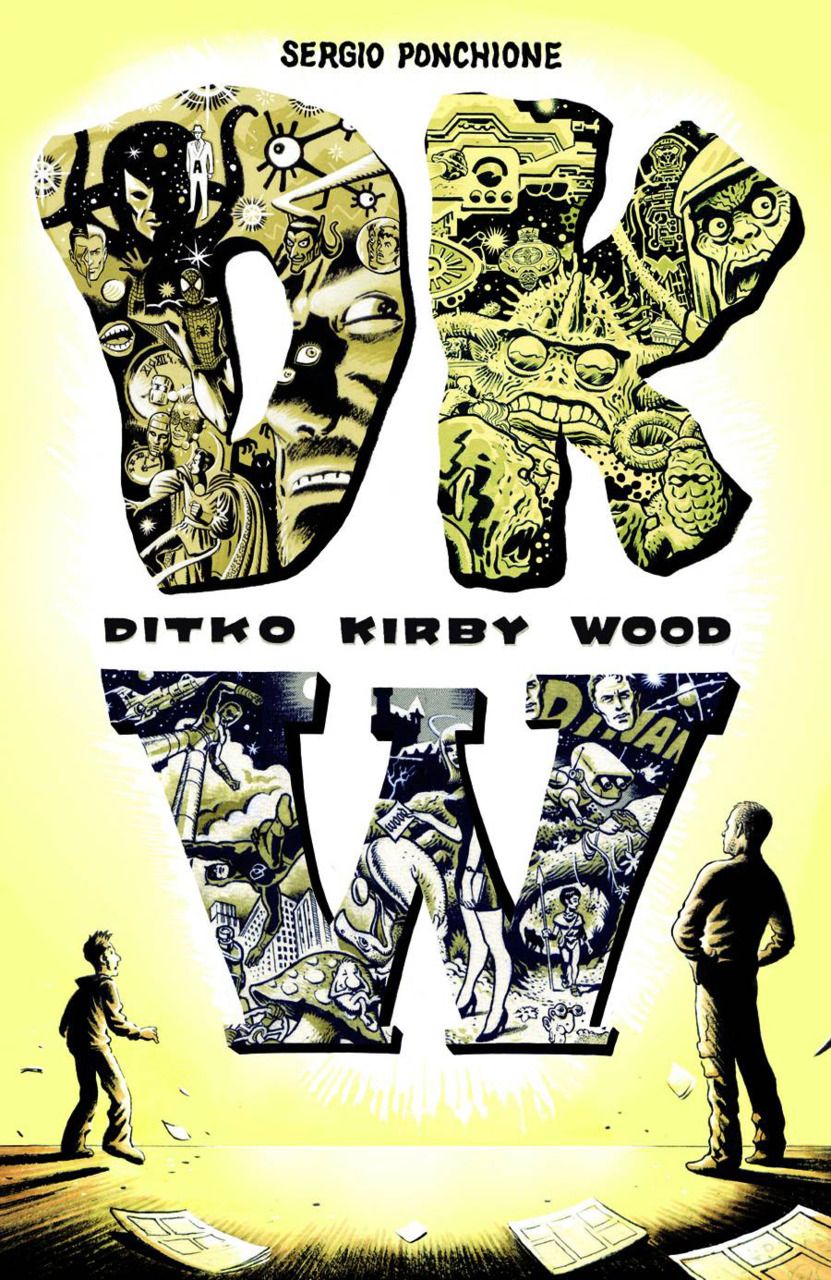Note: This issue was translated by Diego Ceresa with Sergio Ponchione, Eric Reynolds, Kristy Valenti.
Sergio Ponchione's "DKW: Ditko Kirby Wood" is a fun and interesting tribute to a "holy trinity" of American comic book artists. In his homage to Steve Ditko, Jack Kirby and Wally Wood, Ponchione tells a tale that feels very much in the vein of his idols' work: a little trippy, vigorously detailed and deeply passionate. I wouldn't call this a must-read one-shot, but it's a touching and engaging experiment that makes great use of surrealism and metafiction.
The story is narrated by Ponchione himself, who explains Ditko, Kirby and Wood's contributions to a young artist who's brought him a portfolio for review. In a Ditko-esue push toward surrealism, he mixes the autobiographical with the fantastical. Many of the elements suggest that this is a true-to-life comic, but mixed in with all the realist details is the casually supernatural. Ponchione cites his past work on "Mister O'Blique," name-drops a real convention in Lucca and even shows his protege an actual book written by Blake Bell, who penned the introduction to "DKW." (I'm personally okay with blatant product placement if it's in the name of surrealism.) However, hallucinations, premonitions and floating bubble letters drive the story. Ponchione's protege is initially shocked, but neither of the characters is particularly fazed.
"DKW: Ditko Kirby Wood" has fun pushing the bounds of narrative and the conventions of fiction, just to see what gives. It isn't a serious exploration of how comics can be structured, and how they can get their message across, but it's an enjoyable tug at narrative and genre boundaries.
Ponchione's art also provides wonderful homages to Ditko, Kirby and Wood without feeling too much like cheap imitations. Ditko's section contrasts his solitary life with his active mind and output; Kirby's is a riotous explosion of imagination (set in space, of course); Wood's is a long-form article with dark, detailed pictures to complement the text. All three are washed in a yellow sepia that feels vintage, but not overly kitschy. It's clear that Ponchione has great respect for the trinity's professional success and feeling for their personal sufferings.
For all that I like about "DKW," though, it's interesting to consider who the intended audience is. Most of the biographical information that's provided about Kirby, Ditko and Wood is relatively basic, as many comics fans have a rough idea about these three men's lives. This might suggest a beginner audience. However, Ponchione's visual allusions to their work are probably only going to be recognized as such by readers who are already familiar with Ditko, Kirby and Wood's work. As a result, it wasn't easy to discern what I was supposed to get out of the book.
All in all, "DKW" is quite likeable. If you like your comics a little trippy and your tributes a little complex -- or if you're a fan of Ponchione -- you should definitely check it out.

